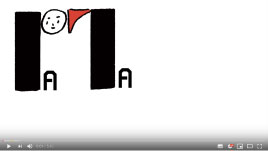The Multiplicity of Money
Hiroo Yamagata (Translator)
People often mistake economics for some kind of monetary science, but it’s not. Even most main stream economists are clueless as to why and how money actually influences economic activity. Take the various esteemed academics who continue to oppose the policies just realized by “Abenomics,” which is to say, the idea that if the Bank of Japan adamantly continues massive credit easing, economic recovery will result. The whole spectacle has been an object lesson which only serves to highlight the fact that many economists indeed do not understand the function of money well at all.
John Maynard Keynes was the first to think it through and state it as a theory. To summarize, his idea was that that if money doesn’t circulate in the market, then people won’t be able to purchase because: No suppy, no demand. No matter how many products are out there, without the cash available to buy them, the economy doesn’t work.
This begs the question, how could such a thing as a cash shortage happen? The quick answer is that this is because money not only functions to transmit value through purchases, but it also functions to accrue value. More plainly: One can use money for trade, but one can also keep it in the mattress. When savings increase, money for exchange decreases, thus economic activity stagnates. That’s Keynes. Therefore, increasing money supply should activate trading. Kind of hard to miss, unless one is fixated on just the trade aspect of its value.
Of course there are also those who pay too much attention to money’s function of accruing value. This is where so many socialists mistook money as the cause of social disparity and class… and the origin of all evil… and thereby extrapolated that if money could be destroyed then an utopian equilibrium would “return.” Mao Tse-tung and Che Guevarra both demanded the demolition of money. Cambodia’s Pol Pot’s government actually achieved it. But that also meant killing the other function of money, its function as a trade catalyst, and thus resulted in destroying economic life.
To review. One one side money is a tool for trading. On another it’s a method for conserving value. The mystery of money lies in this two-sidedness.
Ken Suzuki’s “The Smooth society and its enemies”, has received a certain amount of attention recently. The book insinuates an even bigger role for money: That it is retains traces of its exchange flows.
I get the argument. But personally I think that the functions of money are already complicated enough. I’d rather think in terms of reducing the definitions of its functions. The idea would be to ask if it were not possible to isolate money’s function only as a tool for trading, and disregard its other functions including value retention?
If that could work then we wouldn’t have the kind of recessive framework we have today… still, having said this, I know that this thought experiment is unlikely to actually work. Maybe we’re simply inexorably bound to the money curse. On the other hand, what’s the harm in stopping burdening money with so many meanings. Why not just stop having beliefs or illusions about it, for better or worse, and just understand it as the tool that it is, and drop this whole nonsense about capitalism. You may say I’m a schemer. But I’m not the only one.
(Translated by David d’Heilly)
–> back to “Money after Money” website


 ジャズ作曲家、挾間美帆、CD制作助成
ジャズ作曲家、挾間美帆、CD制作助成
 音楽家、網守将平、CD・コンサート制作助成
音楽家、網守将平、CD・コンサート制作助成
 音楽プロデューサー、牧村憲一によるコンサート、レクチャー・シリーズの制作
音楽プロデューサー、牧村憲一によるコンサート、レクチャー・シリーズの制作
 和食を世界各地の子供に食べてもらうショート・ムービー“オマカセ・フォー・キッズ”の制作
和食を世界各地の子供に食べてもらうショート・ムービー“オマカセ・フォー・キッズ”の制作